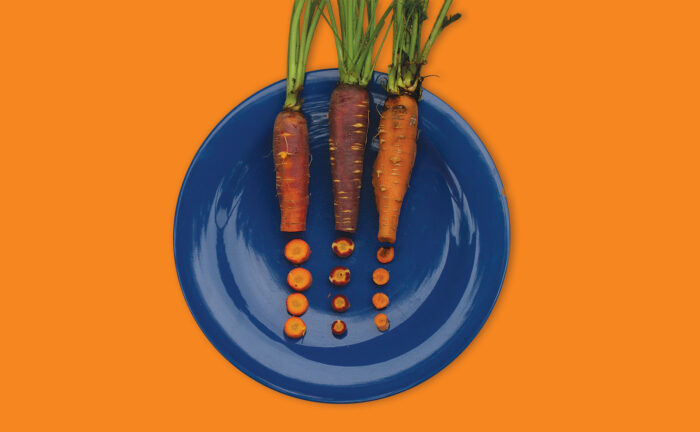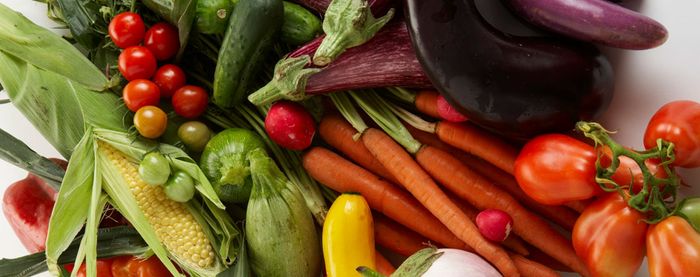Best Carrot Varieties to Grow From Seed

Before you actually do it, growing carrots seems masochistic—especially if you’ve listened to the tales of fellow gardeners, citing drainage woes and deformed crops. But what’s a gardener to do once you’ve succeeded with the surefire “easy-to-grow” veggies and want to broaden the harvest to include delicious carrots? I was at that point a few years ago, so I decided to bite the bullet and buy as many types of carrot seed that I could find to trial. Each variety got one row, and to my surprise, many flourished. So before you say, “No, thank you” and stick to reliable crops you can watch grow aboveground, take a look at these tasty taproot champions that emerged as my favorites.
Basics of Growing Carrots From Seed
- Thoroughly mix compost into the top 6 inches of soil.
- Prior to direct sowing, mix the seed with coarse sand to help you plant them evenly.
- Sow the seeds in shallow rows that are spaced at least 6 inches apart.
- Cover the small trench with a layer of soil about half an inch thick.
- Water the seedlings at least once a day until the tops reach 3 inches tall (and if no rainfall occurs).
Favorite Flavorful Carrot Varieties
‘Danvers’
This is a classic carrot that will never let you down. The roots grow deep, forming almost perfectly tapered shoots. From germination (nearly 100 percent) to harvest, this was the strongest grower trialed. I’ve been told that the ‘Danvers’ harvest usually coincides with the time of year when carrot cakes start coming out of kitchens (70 days after sowing). In my experience, it is the best carrot to use in baked goods.

‘Purple Haze’
In case you hadn’t guessed, this hybrid carrot develops a purple exterior. The hue is lost during cooking, so fresh eating and juicing harness its full Technicolor potential. I find the flavor a bit lacking when compared with the other carrots in this trial, but if you need to persuade children with picky palates to consume veggies, purple carrots might do the trick. You can expect to harvest these spears 73 days after sowing.

‘Cosmic Purple’
These carrots, which are ready to be pulled toward the middle of the season, provide long tapers similar to those of ‘Scarlet Nantes’. This type defines the adage “Good things come to those who wait.” If you choose to harvest them sooner than 70 days, you’ll likely miss out on beautifully robust roots.

‘Dragon’
The first time I tasted a ‘Dragon’ carrot, my tingling tongue made me wonder if it was laced with arsenic. Now that I’m a bit more experienced, I know that this carrot exhibits a slightly spicy flavor. I love using this sultry vegetable chopped up into deep maroon coins, and I long for the dramatic color when there are only humdrum orange varieties to be had. Although the spears never got as big as the package boasted (only reaching 5 to 6 inches long), they were still a respectable size, maturing in 85 days.

‘Scarlet Nantes’
All these seeds RSVP’d to the garden party and germinated, driving me close to tears while I was thinning them out. The seed-packet illustration promised hearty, thick, stump-ended carrots, but after waiting two months and pulling some up, I got big, conical taproots. This didn’t make a bit of difference when the carrots were grated up for a cake or blended into a soup. A few months later, however, I found some ‘Scarlet Nantes’ hidden behind a grumpy cabbage. When I pulled, I found full-on stumps, true to the packet’s promise. ‘Scarlet Nantes’ tastes great cooked or raw and is a must-sow for novices and pros alike. It matures in 65 to 75 days.

‘Paris Market’
If one carrot had to win for looks alone, this would be it. This little round darling germinates punctually, grows with haste, and is ready for eating in as little as 50 days. It’s ideal for short-season growers or those looking to sow a quick fall crop. It tastes slightly tangy, almost like anise. Given its small globe shape, ‘Paris Market’ is best eaten whole in cooked dishes. It tends to stay crisp and fresh long after harvesting too. That and its name justify the tableau that pops into my head every time I look at these carrots—one of French veggie mongers in cobbled Parisian streets.

How to tell when it’s time to harvest carrots
Because carrots mature underground, it can be tricky to figure out when they’re ready to be unearthed. Here are a few tips to ensure that you pluck them out at just the right time:
- Carrots are ready to pick when they are about ¾ inch across at the top, just below the green stem. The orange part of the carrot may be sticking out aboveground, or you can gently remove the dirt from around the stem to investigate.
- When the fernlike tops begin to topple over (without any help from a wind- or rainstorm), your spears are usually ready to go.
- Pull a few roots out of the ground after 50 days, no matter what, to check for size. Lift up slowly to harvest the shoots without damaging the roots.
Antonio Reis is the former web producer for Fine Gardening and—after trialing nearly 20 types last year—is looking forward to growing only his six favorite carrots this year.








Comments
Log in or create an account to post a comment.
Sign up Log in